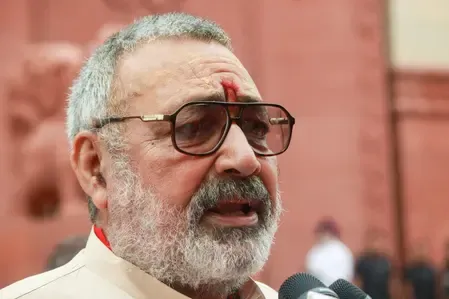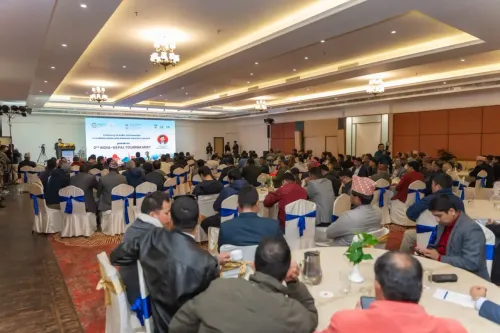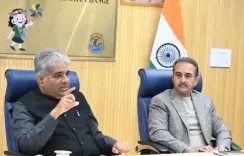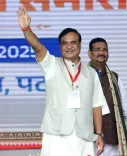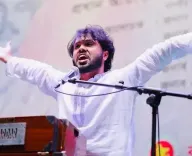FM Sitharaman Pushes for Job-Centric Inclusive Growth in Budget 2025-26
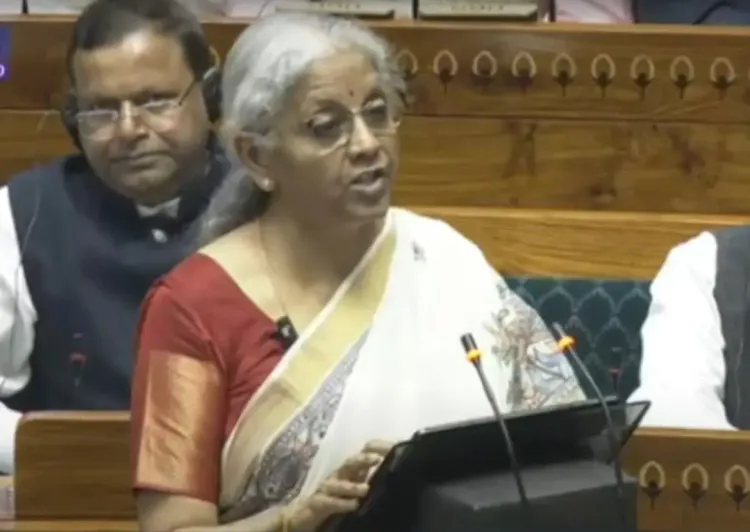
Synopsis
Key Takeaways
- Focus on employment-driven inclusive growth
- Tax relief for middle-class earners
- Increased support for MSMEs and farmers
- Boost to domestic manufacturing
- Investment in nutrition programs for vulnerable populations
New Delhi, Feb 1 (NationPress) Finance Minister Nirmala Sitharaman unveiled the Budget 2025-26 in Parliament on Saturday, focusing on fostering employment-driven inclusive growth through investments in the agricultural and rural sectors, MSMEs, and exports while adhering to a path of fiscal consolidation.
"This budget aims to accelerate growth, fueled by our vision of a 'Viksit Bharat.' Our economy continues to be the fastest expanding among major economies," stated the Finance Minister in the Lok Sabha.
The Union Budget addresses several key areas, including taxation, power, urban development, mining, the financial sector, and regulatory reforms. These sectors are crucial to the government's strategy for stimulating growth, enhancing infrastructure, improving governance, and ensuring sustainable development.
The budget deficit target has been set on a declining path to 4.4 percent of GDP for 2025-26, down from 4.8 percent in 2024-25.
The net market borrowing for the budget is pegged at Rs 11.54 crore, with additional funds sourced from small savings and other avenues. The gross borrowing target for FY26 has been revised upwards by 5.7 percent to Rs 14.82 lakh crore, up from Rs 14.01 lakh crore in FY25.
In a significant relief for the middle class, Sitharaman announced that there will be no income tax on annual earnings up to Rs 12 lakh. For salaried individuals benefiting from a standard deduction of Rs 75,000, there will be no tax on income up to Rs 12,75,000.
This initiative will enable individuals to retain more disposable income for spending on goods and services, consequently stimulating economic growth.
To enhance domestic manufacturing, customs duties have been adjusted, increasing tariffs on finished goods like electronic items while reducing duties on components used by local manufacturers.
The Finance Minister emphasized agriculture as the “primary engine” for growth. Under the Prime Minister Krishi Yojana, a new initiative inspired by the success of the Aspirational District Programme will be launched to target 100 districts with low productivity, moderate crop intensity, and below-average credit metrics, benefiting 1.7 crore farmers. Additionally, the limit for Kisan Credit Card (KCC) loans will rise from Rs 3 lakh to Rs 5 lakh under the interest subvention scheme.
MSMEs are recognized as the second engine of growth, with a focus on 5.7 crore MSMEs, which include over one crore registered businesses employing 7.5 crore people and contributing 36 percent to India's manufacturing sector. These MSMEs play a vital role in establishing India as a global manufacturing hub, accounting for 45 percent of the nation’s exports. The government plans to enhance investment and turnover limits for MSMEs, increasing them by 2.5 times and 2 times, respectively, to empower them to expand, innovate, and create more job opportunities for youth.
Furthermore, the Finance Minister introduced specific initiatives to uplift the productivity, quality, and competitiveness of India's footwear and leather sector products, which is expected to create jobs for 22 lakh individuals, generate over Rs 400 crore, and achieve exports exceeding Rs 1.1 lakh crore. New measures will also be implemented for the toy sector, based on the National Action Plan for Toys, aiming to establish India as a global hub for toys, developing clusters, skills, and a manufacturing ecosystem for high-quality, innovative, and sustainable toys, representing the 'Made in India' brand.
The Finance Minister stressed that investment is the third engine of growth, encompassing investments in people, the economy, and innovation. As part of this initiative, the government is focusing on the Sashakt Anganwadi and Poshan 2.0 programs, which provide nutritional support to over 8 crore children, pregnant women, lactating mothers, and around 20 lakh adolescent girls in aspirational districts and the Northeast region. Cost norms for these programs will be improved, added Sitharaman.




